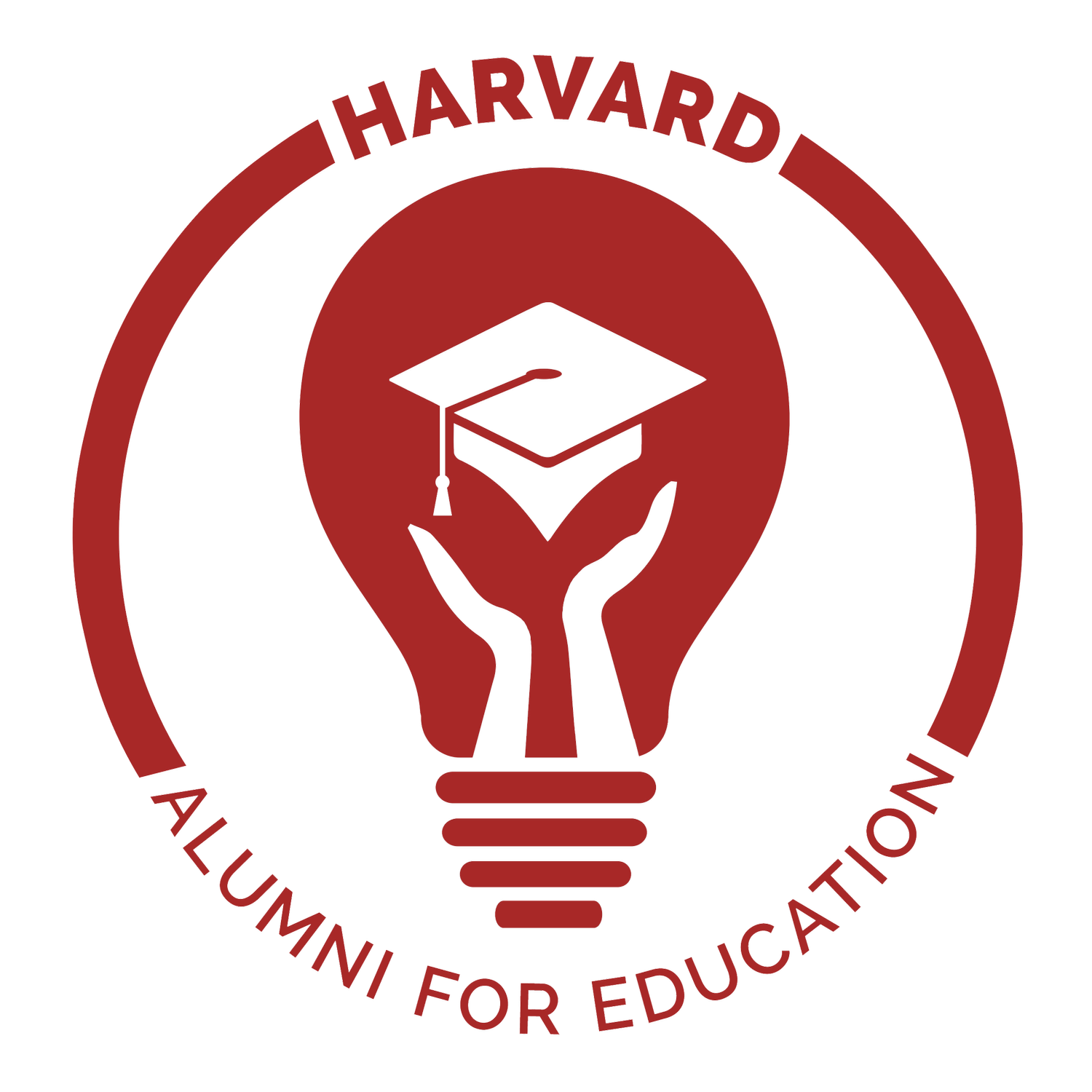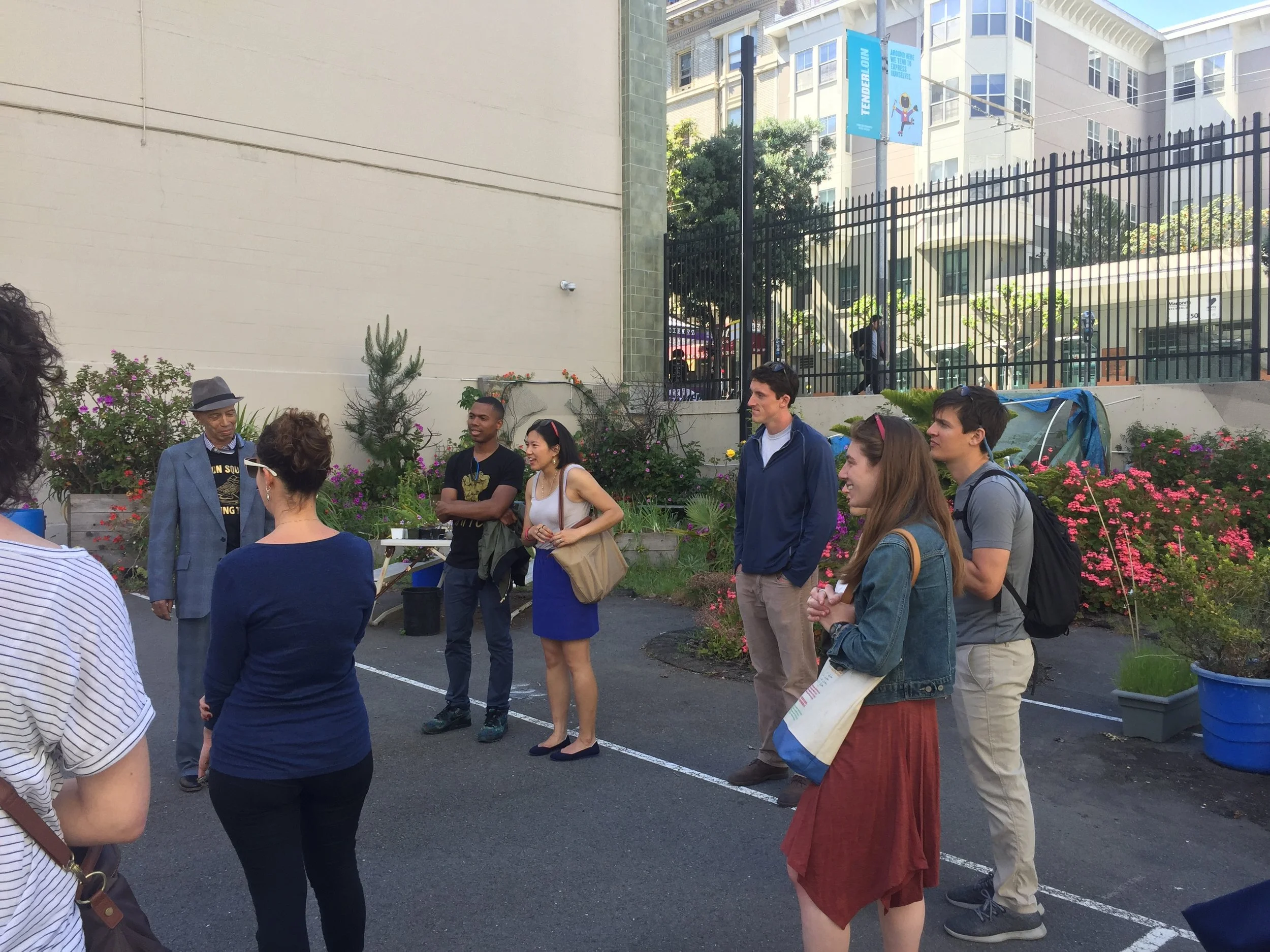On April 30th, 2017, Harvard Alumni for Education met with Del Seymour, Founder of Code Tenderloin, a non-profit organization that helps the formerly incarcerated, homeless and similarly marginalized residents of the San Francisco community develop job readiness skills and find work.
Del Seymour, Founder and Director of Code Tenderloin.
Mr. Seymour is an active and well-known community organizer in San Francisco who overcame homelessness and drug addiction and now dedicates his life’s work to helping other members of the community do the same. He serves as the founder and director of Code Tenderloin, Board Member of Saint Francis Tenderloin, Director of Swords to Plowshares and the Gubbio Project, and as a committee member of the Better Market Project. An article about him in the San Francisco Chronicle reads:
"There are two mayors in San Francisco: the one who governs over the entire municipality, and another in a fedora and pinstriped suit who presides over about 16 square blocks northeast of City Hall.The unofficial mayor would be Del Seymour, and in the Tenderloin he’s arguably better known than Mayor Ed Lee."
Harvard Alumni for Education met with Mr. Seymour to discuss Code Tenderloin’s approach to workforce development. The group also accompanied Mr. Seymour on a walking tour of the Tenderloin district of San Francisco. Mr. Seymour shared the rich history of the Tenderloin district, and the group explored the old Hibernia Bank, Gubbio Project, St. Anthony's, Tenderloin Museum, and Cadillac Hotel.
HAEd and Del Seymour at the Cadillac Hotel.
Julia Gitis (Harvard Graduate School of Education, 2010) shared her favorite memory from the tour:
I particularly enjoyed Del's approach to job training in his organization Code Tenderloin. He told a story that exemplified the unique strength of his program- ‘When our participants are going to real job interviews, people might make assumptions about topics they're interested in or make small talk with them about sports teams like the Warriors. If an HR or hiring manager at Twitter asks one of our participants what they think about the Warriors, this is how they'll respond- 'Today is the most important day of my life. I'm interviewing here at Twitter. This interview is an opportunity for me to get a job at a great company. Today I'd like to share my thoughts on your product and where your company is headed. Let's talk about the Warriors tomorrow after you hire me. Today let's talk about Twitter and how I can contribute to your company.’ I was really struck by this disarming and genuine response to a common question. Even though I already work in the tech industry, in many ways I think Del is training the folks at Code Tenderloin to be better prepared for interviews than I am. Del's story showed me that Code Tenderloin isn't your typical nonprofit- Del and Code Tenderloin are taking job readiness and workforce development to the next level.
Patrick Erker (Harvard Business School, 2013) shared his favorite memory from the tour was in hearing “Del speak of the power of individual courage, of family support, and of faith, to deliver him from a very tough life in the Tenderloin. Del spoke powerfully of his own personal story, and is now working to bring a truly human touch to help others in the community who deserve our compassion and support. I'm glad that we have such leaders in our community organizations and church communities here in San Francisco.”
Harvard Alumni listen to Del Seymour share his experience as Founder and Director of Code Tenderloin.
Through this event, participants contributed funds to support Code Tenderloin’s ongoing programming. One of the organizers of the event, Jane Yu, Bay Area Chapter Chair (Harvard Business School, 2013), explained, “This event allowed our SF Chapter to develop a renewed appreciation for one of San Francisco’s most diverse neighborhoods and emerge with an awareness of the nuances of workforce development educational models that serve students of all backgrounds.”




